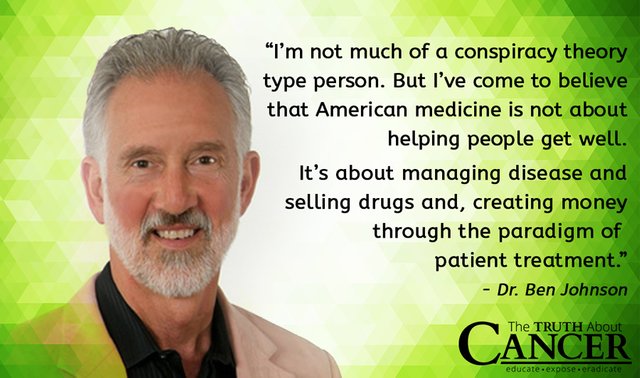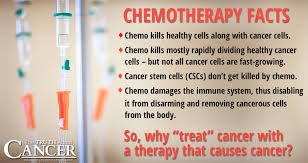
Video Transcript: Can These Common Medical Tests & Treatments Give You Cancer?
Ty Bollinger: So you hear all month this month, it’s breast cancer awareness month, about early detection. You’re saying they should be using thermography instead of mammography. It’s a better early detection technique. Why, in your opinion, are they not using it if it works so much better?
Dr. Ben Johnson: You know there are things that you just want to shoot yourself over that the medical—standard medicine does not do. I’m not much of a conspiracy theory type person. But I’ve come to believe that American medicine is not about helping people get well. It’s about managing disease, and selling drugs and, creating money through the paradigm of patient treatment.
https://www.youtube.com/watch?time_continue=1&v=Y5klsI9yZo4
So you can’t talk about cure. You can’t look at getting people well from cancer. They just want to treat them, and then watch them die. It’s really a pretty pathetic state of affairs. So, we are not interested in standard medicine and getting people well; just managing their disease until they die.
For instance, all of the drugs that you see, if you pick up the label, all of the chemo drugs says “causes cancer.” Think about it.
Ty Bollinger: Yeah.
Dr. Ben Johnson: We’re using a drug to treat cancer that causes cancer, a known carcinogen. How crazy is that! But that’s what we do every day in every institution across America. We use radiation. What do x-rays cause? Hello… cancer. And we are using that supposedly to treat it. So you know Stage 4 cancer in America, survival rate is about two percent. You know, that is horrific.It can’t get any worse than two percent. So two percent success rate for Stage 4 cancers is beyond comprehension. Patients would live much longer and healthier if they did nothing. If they didn’t take the drugs. Because the drugs are hastening their death.

Ty Bollinger: Wow! And I’ve read studies…
Dr. Ben Johnson: Don’t get me started.

Ty Bollinger: I think you’re already started. I think you’re already going, which I’m enjoying because it’s good information. I’ve read studies, people saying the same thing. Doctors and scientists saying that you would live longer by doing nothing, than by doing the treatment. And, I can’t remember the medical doctor that I was just talking to recently said, that in all his years of treating cancer patients, that he’s never actually seen one that died from the cancer. That they always die from the treatment.
Dr. Ben Johnson: Primary tumors almost never kill anyone unless they’re in the brain. The primary tumor can kill you there. But if you give it long enough the metastases can eventually get you. But almost no one in America today dies of their cancer. They die of the side effects of the chemo. And I shouldn’t call those side effects − the direct effects of chemo. Because we call them side effects because they are unwanted. But they are direct effects of the chemo agent.
By Dr. Ben Johnson
Hi! I am a robot. I just upvoted you! I found similar content that readers might be interested in:
https://thetruthaboutcancer.com/medical-tests-cancer-video/
Downvoting a post can decrease pending rewards and make it less visible. Common reasons:
Submit
Hi macfields. I'm a skeptical about Dr. Johnson's claim that: "But almost no one in America today dies of their cancer." I wonder how he draws that conclusion.
Downvoting a post can decrease pending rewards and make it less visible. Common reasons:
Submit
He did say "They die of the side effects of the chemo. And I shouldn’t call those side effects − the direct effects of chemo. Because we call them side effects because they are unwanted. But they are direct effects of the chemo agent." I personally know people who died not from their cancer but from their treatments.
Downvoting a post can decrease pending rewards and make it less visible. Common reasons:
Submit
ok, yes, I saw that too... my question though, stated more specifically, is what evidence does he have to support his claim that : "But almost no one in America today dies of their cancer." ?
Downvoting a post can decrease pending rewards and make it less visible. Common reasons:
Submit